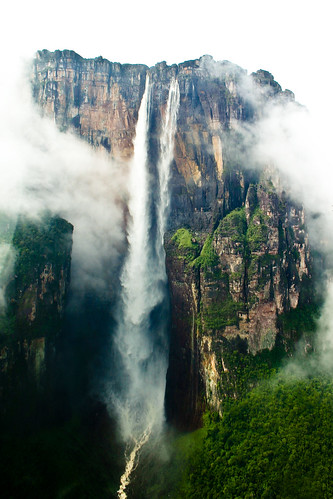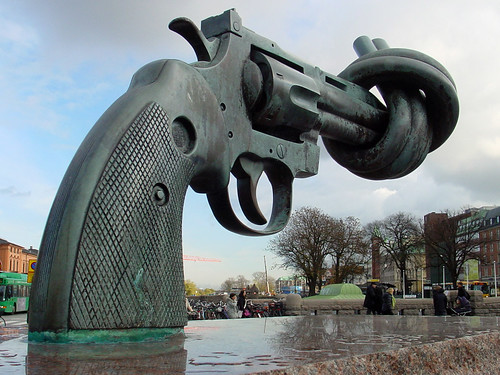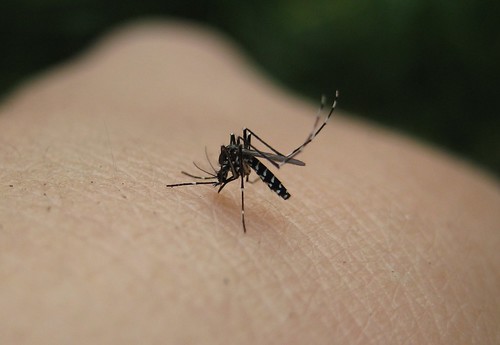This article was originally written for Th!nk about it: Developing world.
- Francisco was driving from work that night, at 7:00 p.m., and he was waiting for the red light to turn green, when a man pointed at him with a weapon from outside the window. Francisco got off the car and handed him the keys, and the man took the car and leaved. Ten seconds later, he came back, in reverse, and he told Francisco: "You almost left with nothing. Where do you want me to shoot you?".
Showing posts with label MDG. Show all posts
Showing posts with label MDG. Show all posts
Friday, April 30, 2010
Wednesday, April 28, 2010
A few things I didn't know about Malaria
(This article was originally written for Th!nk About It: Developing World).
So, I was researching around the web for my trip next week to the Global Voices Summit in Chile, and suddenly I found myself reading the guide on Lonely Planet about my country. I was a bit of a stroke to see all the listed diseases they prevent travelers from while visiting Venezuela. Alphabetically, they list the following: Brucellosis, Cholera, Dengue (breakbone fever), Hepatitis a, Hepatitis b, Hiv/aids (of course), Leishmaniasis, Measles, Rabies, Schistosomiasis, Tick-borne relapsing fever, Typhoid fever, equine encephalitis, and Yellow fever.
So, I was researching around the web for my trip next week to the Global Voices Summit in Chile, and suddenly I found myself reading the guide on Lonely Planet about my country. I was a bit of a stroke to see all the listed diseases they prevent travelers from while visiting Venezuela. Alphabetically, they list the following: Brucellosis, Cholera, Dengue (breakbone fever), Hepatitis a, Hepatitis b, Hiv/aids (of course), Leishmaniasis, Measles, Rabies, Schistosomiasis, Tick-borne relapsing fever, Typhoid fever, equine encephalitis, and Yellow fever.
Labels:
English,
Environment,
Health,
Indigenous Peoples,
Malaria,
MDG,
Poverty,
Venezuela
Monday, April 26, 2010
Venezuela has achieved environmental sustainability: True or false?
This post was originally written for Th!nk About It: Developing World.
 In Venezuela, we have the cheapest gas prices in the world. We pay $0.12 per gallon, when the same amount of water costs around $2.5 (and I'm talking about controlled dollar, not even real black-market one). We have 5.218.942 automotor vehicles in circulation, from which a 5th is located in Caracas, and we consumme over 827 tonnels of oil a day.
In Venezuela, we have the cheapest gas prices in the world. We pay $0.12 per gallon, when the same amount of water costs around $2.5 (and I'm talking about controlled dollar, not even real black-market one). We have 5.218.942 automotor vehicles in circulation, from which a 5th is located in Caracas, and we consumme over 827 tonnels of oil a day.
Labels:
Environment,
Human Rights,
Indigenous Peoples,
MDG,
Venezuela,
Water
Wednesday, April 21, 2010
No one goes hungry in Venezuela: True or false?
Last march, President Chávez stated that "No one goes hungry in Venezuela", an affirmation that he might as well have taken from the official report "Venezuela accomplished the MDGs": Government states that extreme poverty has reduced from 17,1% in 1998, to 7,9% in 2007.
Labels:
Human Rights,
Hunger,
MDG,
Poverty,
Venezuela
Tap water doesn't mean drinking water: Interview with the Movement for Water Quality
(This article was originally written for Th!nk about it: Developing world)
Venezuelan government states that 92% of the population has access to drinking water. Meanwhile, the consequences of a long drought strike Venezuela and the inhabitants of Valencia are affected by polluted water coming from their taps.
Labels:
English,
Environment,
Health,
Human Rights,
MDG,
Venezuela,
Water
Tuesday, April 20, 2010
A history of music, poverty and hope
(This article was originally written for Th!nk about it: Developing world)
I feel the urge to confess, before I say anything, that I’m prouder than pride itself to share my nationality with Gustavo Dudamel. I have yet to meet a venezuelan who doesn’t get goosebumps when s/he hears that Dudamel is conducting the Gothenburg Symphony, or the Los Angeles Philharmonic.
Monday, April 19, 2010
Aid for development with respect: The Wayuu Taya Foundation
(This post was originally written for Think3: Developing World, and can be found here).
To complement my previous post, I interviewed Maria L. Betancur, who serves as Assistant Director of Development and Operations for The Wayuu Taya Foundation, who so kindly obtained some time in her busy schedule to answer my questions. (Also, they have a brand new and beautiful website, wich you can visit here).
Labels:
English,
Indigenous Peoples,
MDG,
Poverty,
Venezuela
Monday, April 12, 2010
Oil, coal, development and indigenous people: In the search for a peaceful settlement
According to UNICEF, the Guajira ranks second among the poorest places in Latin America after Haiti. Wayuus, who represent around 54% of all indigenous population of Venezuela, doesn't have stable access to potable water, suffer of an overly high rate of children mortality (two to three children die everyday of malnutrition), and lack of well-supplied schools, health facilities and hospitals.
Labels:
English,
Human Rights,
Indigenous Peoples,
MDG,
Poverty,
Venezuela
Subscribe to:
Posts (Atom)

